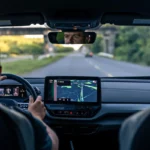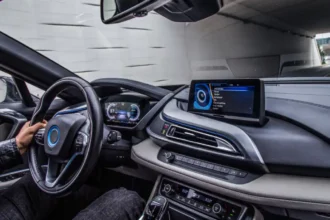In a world where our lives are increasingly interconnected, have you ever wondered about the data your car collects and how it is used? With the advent of new technologies, car data privacy has become a hot topic. This article dives deep into how car data privacy evolves with new technologies, offering you insights, lists, tables, and FAQs to stay informed and secure.
The Changing Landscape of Car Data Privacy
As cars become more connected and autonomous, they generate and process vast amounts of data. This data can include your driving habits, location, personal information, and even biometrics. But with these advancements, the question of car data privacy and security becomes more pressing. How are new technologies influencing car data privacy, and what measures are being taken to protect it?
Understanding Car Data Privacy
Car data privacy refers to the protection of personal information generated and collected by vehicles. This includes data such as:
- Location data: GPS tracking, travel routes, and frequently visited places.
- Driving behavior: Speed, braking patterns, and acceleration.
- Personal information: Phone contacts, messages, and biometrics.
New Technologies Shaping Car Data Privacy
Several cutting-edge technologies are playing a crucial role in enhancing car data privacy:
- Data Encryption
- Overview: Encrypts data to make it unreadable without a decryption key.
- Benefits: Prevents unauthorized access and data breaches.
- Example: End-to-end encryption for in-car communications and data storage.
- Blockchain Technology
- Overview: A decentralized ledger that records transactions across many computers.
- Benefits: Provides transparency and security, reducing the risk of tampering.
- Example: Securely recording vehicle service history and ownership records.
- Artificial Intelligence (AI)
- Overview: AI systems analyze data to detect and respond to potential threats.
- Benefits: Enhances real-time threat detection and response.
- Example: AI-driven cybersecurity systems in autonomous vehicles.
- Advanced Telematics
- Overview: Telematics systems collect and transmit vehicle data for monitoring and diagnostics.
- Benefits: Improves vehicle performance and safety while ensuring data security.
- Example: Usage-based insurance models that respect user privacy.
Key Aspects of Vehicle Cybersecurity
To protect car data privacy, vehicle cybersecurity must address several critical aspects:
| Aspect | Description | Importance |
|---|---|---|
| Authentication | Verifying the identity of users and devices accessing vehicle systems. | Prevents unauthorized access. |
| Authorization | Ensuring that users and devices have the necessary permissions. | Controls access to sensitive data. |
| Data Integrity | Ensuring that data is accurate and has not been tampered with. | Maintains trustworthiness of data. |
| Confidentiality | Protecting sensitive information from being disclosed to unauthorized users. | Preserves privacy of personal data. |
| Availability | Ensuring that vehicle systems and data are accessible when needed. | Supports reliable vehicle operation. |
FAQs on Car Data Privacy and Security
What types of data do modern cars collect?
Modern cars collect various types of data, including location, driving behavior, personal information, and vehicle diagnostics.
How is car data used by manufacturers and third parties?
Car data is used for improving vehicle performance, developing new features, providing personalized services, and for marketing purposes.
What are the risks associated with car data privacy?
Risks include unauthorized access, data breaches, identity theft, and misuse of personal information.
How can I protect my car data?
Protect your car data by keeping your software updated, using strong passwords, being cautious with third-party apps, and understanding your car’s privacy settings.
What regulations exist to protect car data privacy?
Various regulations, such as the GDPR in Europe and the CCPA in California, aim to protect personal data, including data collected by cars.
The Future of Car Data Privacy
The future of car data privacy will likely see the integration of more advanced technologies and stricter regulations. Here’s what to expect:
- Stronger Regulations: Governments will implement more comprehensive data protection laws.
- Enhanced AI Solutions: AI will play a bigger role in detecting and preventing cyber threats.
- User Empowerment: Consumers will have more control over their data, with clearer options to opt in or out of data collection.
READ MORE : Benefits of Car Heads-Up Displays Explained
Conclusion
Car data privacy is an evolving field, shaped by new technologies that offer both challenges and solutions. As vehicles become more sophisticated, ensuring the security and privacy of the data they collect is paramount. By staying informed and taking proactive measures, you can protect your personal information and enjoy the benefits of modern automotive technology.
Thank you for reading! To stay updated on the latest trends and developments in car data privacy and other tech news, join our community on social media, subscribe to our newsletters, and enable push notifications for instant updates.











